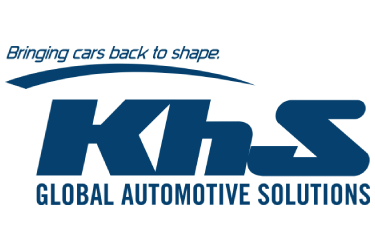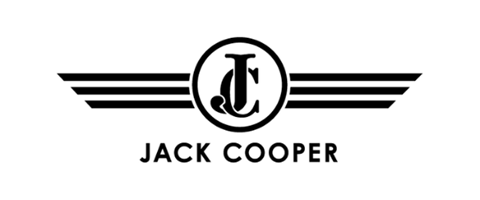2023 Conference Programme
Collaborating on capacity, quality and a changing network
Finished Vehicle Logistics North America Golf Day
Kick off the 13th Finished Vehicle Logistics North America conference in style with a round of golf at a prestigious Californian course. Reconnect with colleagues and peers, taking in the stunning views and navigating the well-kept greens, and test yourself against the best swingers in town! Spaces are limited so book early to secure your place.
Hosted by

18:00 – 21:00 PDT
Welcome Cocktail Reception
Feel the buzz as the sector’s leaders and experts come together once again on the eve of the conference. The welcome cocktail provides a great opportunity to make new connections, catch up with old friends and start discussing the key trends, issues and opportunities shaping vehicle logistics.
Dress code – Business Casual
Hosted by

Welcome to Finished Vehicle Logistics North America 2023
08:00 - 09:00 PDT
09:05 - 09:45 PDT
Conference open for registration, networking and refreshments
Collect your badge, connect with colleagues and enjoy a delicious breakfast ahead of the opening session.
Session 1: Confidence in volatile times – meeting the needs of a changing network
MODERATOR
Christopher Ludwig, Editor-in-Chief, Automotive Logistics & Ultima Media
SPEAKERS
Nick Thompson, Head of Vehicle Logistics - North America, Stellantis
Rory Hepner, Director Global Vehicle Logistics and Customs, Mercedes-Benz USA
Supply chain and economic uncertainty is making vehicle logistics planning more challenging. However, the North American automotive network is developing positively, with new models and electrification leading to plant updates, greenfield operations and changing trade lanes. This transformation is driving new requirements for multimodal and combined transport solutions, for ocean and port services, for example from Mexico, and for rail and trucking capacity across multiple locations.
In this session, hear from OEM and logistics provider leaders to better understand current and upcoming requirements across different modes, infrastructure and equipment. Learn about the changing North American vehicle logistics network, and gain the confidence on where you can invest in the capacity, skills and resources to meet market and customer demand.
09:45 - 10:30 CET
Session 2: The load factor: seeking capacity, finding solutions
MODERATOR
Christopher Ludwig, Editor-in-Chief, Automotive Logistics & Ultima Media
SPEAKERS
Jennifer Sarah Bolton, Director of Finished Vehicle Logistics and Supply Chain Systems and Strategy, Nissan
Bill Kerrigan, Chief Commercial Officer, North America & Europe, RPM
Sarah Amico, Executive Chairperson, Jack Cooper
A variety of factors are impacting the ability to maximise load factors and optimise delivery routes across North America, from vehicle inventory, equipment and labour shortages to challenges in reaching lower density markets in a timely manner. Increasing weights and decreasing load factors for electric vehicles are another risk. As US production stabilises and vehicles awaiting critical parts are released into the network, carmakers must rethink how they optimise each load and remain a customer of choice to keep their networks flowing.
In this session, hear how OEMs of different sizes are working with new and existing providers to improve visibility and provide new solutions to better maximise truck and rail capacity, build more effective loads. OEMs and logistics providers share insights including the use of alternative modes of transport and equipment, maximising backhaul opportunities across players and the remarketing sector, and even reassessing carrier contracts and compensation.
10:30 - 11:15 PDT
Networking, meetings and exhibition
11:15 - 12:00 PDT
Session 3: Essential Intelligence: North America’s automotive outlook
MODERATOR
Richard Logan, Senior Content Producer, Automotive Logistics & Ultima Media
SPEAKER
Guido Vildozo, Senior Manager, Americas Light Vehicle Sales Forecasting, S&P Global
Improve your strategies and planning with the very latest figures and forecasts for vehicle production and sales in North America. Get the inside track on the key trends and policies, including electric vehicles and the inflation reduction act, influencing vehicle volumes and capacity requirements in the short and long-term.
12:00 - 12:45 PDT
Session 4: A sea change for vehicle shipping: investing in greener capacity and infrastructure
MODERATOR
Richard Logan, Senior Content Producer, Automotive Logistics & Ultima Media
SPEAKERS
Kristin Decas, CEO & Port Director, Port of Hueneme
Andreas Enger, Chief Executive Officer, Höegh Autoliners
Gerard van den Heuvel, Chief Operating Officer, DP World Canada
Recovering production volumes are bringing new opportunities for ports, shipping lines, processors and vehicle manufacturers. However, OEMs are faced with a shipping capacity crunch, and while sustainability strategies and policies require new investments and partnerships. New IMO and CARB (California Air Resources Board) regulations, along with the introduction of the carbon intensity indicator reporting, mean many existing fleets and port facilities are investing in terminal infrastructure for plug-in capabilities and in vessel improvements to meet the new standards, creating greater need for collaboration between supply chain partners.
In this session, hear the latest market intelligence on roro and vehicle compound capacities and global shipping trends, and understand how ports and shipping lines are investing in alternative fuels for vessels, port infrastructure, and equipment specifically for electrification to boost capacity and speed-up throughput whilst reducing emissions and supporting OEMs navigate the choppy waters to a net zero carbon future.
12:45 - 14:00 PDT
Lunch & networking
Hosted by

14:00 - 15:00 PDT
Finished Vehicle Logistics Ideas Labs
The Finished Vehicle Logistics Ideas Labs are small, solutions-orientated working groups that provide an invaluable opportunity to interact and work directly with key industry peers on the real-life issues that matter most to you. Facilitated by subject-matter experts, each Ideas Lab is an open discussion that addresses challenges head on.
Ideas Lab 1: Driving up driver productivity
SPEAKER
Shawn Pulatov, Logistics Manager, CRC Transport
As the chip shortage eases and production volumes rise, pressure on the already constrained vehicle carrier network will increase, making operational excellence critical to maximise capacity and reduce bottlenecks. Join this roundtable of experts and discuss strategies and tactics to improve driver productivity, optimise operations at vehicle compounds and distribution ramps and utilise technology and tools to eradicate slow and manual procedures.
Ideas Lab 2: Getting back on the rails – ensuring railcar capacity and service levels
SPEAKER
Bryan Burkhardt, Executive Director, Automotive Logistics Executive Committee
Rail logistics accounts for the largest share of vehicle transport miles across North America, but the industry continues to face labour shortages and capacity misalignment. To ensure efficiency and quality, logistics experts from across all modes and players need to work together. Join this interactive discussion to find new solutions and develop a plan for the future of rail.
Ideas Lab 3: Achieving a fully visible, fully connected network
SPEAKER
Dennis Manns, Executive Vice President, North Motors Group
OEMs and providers are increasingly using data and technology to track vehicles and manage their networks and operations. But with multiple tools serving various stakeholders at different milestones across the outbound value chain, is a fully visible, fully connected network even possible? Join fellow data experts and technology specialists and users to understand how to maximise visibility with the tools and technology on the market.
Ideas Lab 4: The flow must go on: port and processing quality in times of disruption
SPEAKER
Victor Arabe, Senior Group Manager, PDI Operations and Port Quality, Hyundai Motor America
Effective scheduling and sequencing of port processing and PDI operations have become even more critical as OEMs strive to manage their supply chains with leaner vehicle inventories. The industry faces longer lead times from capacity shortages in ro-ro shipping and inland connections. In this ideas lab, work with port processing, VDC and PDI specialists at OEMs and logistics specialists on strategies to reduce dwell time and improve 'first in, first out' (FIFO) processes in an era of leading vehicle inventory; improved quality, including through preventative maintenance strategies; and ensure ports and VDCs are ready for the growth of electrification.
15:00 - 15:45 PDT
Networking, meetings and on demand catch up
15:45 - 16:30 PDT
Session 5: The clock is ticking – improving ETA accuracy
MODERATOR
Richard Logan, Senior Content Producer, Automotive Logistics & Ultima Media
SPEAKERS
Anu Goel, Executive Vice-President, Group After Sales & Services, Volkswagen Group of America
Christine Krathwohl, Vice President Global Business Development, FreightVerify
Jim Pang, VP, New Services Development and Product Innovation, TrinityRail
With demand high, inventories low and average delivery lead times longer than they have been for years, increasing visibility across the vehicle supply chain and the ability to generate increasingly accurate ETAs is vitally important to enabling stakeholders across the network to optimise their operations and better manage customer expectations. Even a small number of delays and inaccurate ETAs can have a devasting impact on dealer operations and customer expectations. However, improving ETA has no magic bullet: no single department, technology or company who can improve it, but rather it is dependent on the ecosystems of departments, suppliers, logistics providers, brands and dealers.
In this session, learn how carmakers, logistics and technology companies are combining to better track vehicle distribution from plant to carrier to dealer and advancing vehicle allocation processes to improve accuracy and minimise ETA revisions.
16:30 - 17:15 PDT
Session 6: Network efficiency in the new (and ever-changing) normal
MODERATOR
Christopher Ludwig, Editor-in-Chief, Automotive Logistics & Ultima Media
SPEAKERS
Anthony Clevio, Director of Global Outbound Logistics, General Motors
D'Andrae Larry, Group Vice President, Automotive, Norfolk Southern
Darren Acker, Director, Vehicle Logistics Operations, Glovis America
Julie Luna, Chief Commercial Officer Jack Cooper Mexico, Rail & Intermodal, Jack Cooper
North American vehicle logistics continues to manage through successive supply chain challenges and transformations, from chip to transport and driver capacity issues; from vehicle inventory shortages to deliberate decisions to reduce inventory. And the paradigm shift is accelerating even further, as production and logistics networks evolve; as new import and export patterns impact shipping and ports; as longer dwell and slower velocity bring new considerations for rail and multimodal transport; and as the industry prepares to build and distribute more EVs.
Despite these changes, OEMs and their providers are working to increase efficiency, reduce lead times and manage costs. In this panel discussion, learn how leading carmakers, like General Motors, are working with partners to adapt to constant change and still improve productivity and experience for final customers.
Join the discussion to learn more on:
-What changing production footprints in North America – including new investment in the Midwest, US South and Mexico – will mean for vehicle logistics network efficiency;
-How the industry is adapting changing dwell and lead times across transport modes, including for rail transport in key regions of North America;
-How shifts in vehicle imports and exports are impacting global and regional ro-ro ocean flows and port processing;
-How OEMs efforts to maintain low inventory and prioritise production and distribution will impact outbound logistics
17:15 - 21:00 PDT
Finished Vehicle Logistics North America Gala Reception
Continue your conversations with a refreshing drink and delicious food as the Californian sun sets on the opening day of the conference.
Dress code - Business Casual
08:30 - 09:15 PDT
Conference open for registration, networking and refreshments
Prepare for another day of important insights and industry discussions with some early refreshments and strong coffee!
09:15 - 09:45 PDT
Vision for Transforming California’s Transportation Future - Toks Omishakin, Secretary of Transportation, California State Transportation Agency (CalSTA)
MODERATOR
Richard Logan, Senior Content Producer, Automotive Logistics & Ultima Media
SPEAKER
Toks Omishakin, Secretary of Transportation, California State Transportation Agency (CalSTA)
The North American automotive industry’s transformation to a modern, sustainable, electric and safety-led sector is reliant on the continued development of and investment in world-class logistics systems and transportation networks across the region, not only to improve trade flows and mitigate bottlenecks today, but also accelerate the transition to the accessible, economical and carbon-free mobility sector of the future.
In this special keynote address, Transportation Secretary Toks Omishakin, of the California State Transportation Agency, will share his vision for a safe, equitable, sustainable, and multimodal transportation system that will serve people and businesses, and help to keep the American automotive and industrial sector competitive through reliable freight and trade in North America and globally.
In this session, you’ll learn more about how California is leading on sustainable transport policy in the US, including:
09:45 - 10:30 PDT
Session 7: Highway to high voltage
MODERATOR
Christopher Ludwig, Editor-in-Chief, Automotive Logistics
SPEAKERS
Steve Jernigan, Senior Director Supply Chain, Nissan North America
Charles Franklin II, Senior National Manager, Business Development, Glovis America
Mike Matousek, Director of the Automobile Carriers Conference, American Trucking Associations
EV volumes and investments in the US are charging higher thanks to improving technology, investment and government regulations, and OEMs and logistics providers need real answers and practical solutions to how they are going to manage the clear challenges, notably the higher weights and lower payloads for truck delivery. The sector must also address ageing equipment and the need for investment in alternative fuel transport as part of the road to zero emission supply chains.
In this session, hear how the key players leading the electric revolution are planning their logistics and networks for transport, VDCs and storage, including how OEMs such as Nissan are piloting and scaling the use of alternative fuel trucks across outbound and inbound operations in the US and Mexico. Understand the different alternative fuel powertrain technologies available, from electric to hydrogen fuel cell, what and where car makers and logistics providers need to invest in terms of equipment and infrastructure, and also what is needed in terms of policy changes and lobbying to accelerate the sector forward on the highway to high voltage.
10:30 - 11:00 PDT
Networking, meetings and exhibition
11.00 - 11:30 PDT
Session 8: How Toyota is developing talent in vehicle logistics in the digital age
MODERATOR
Richard Logan, Senior Content Producer, Automotive Logistics & Ultima Media
David Kleiner, Manager Immersive Technology, Toyota Motor North America
Eric Swei, Principle Architect, Toyota Motor North America
Restocking US dealer vehicle inventories remains a priority for carmakers after three years of supply chain disruption. That requires a talented workforce that can make and move the vehicles, and troubleshoot with accuracy with any holdups in the process. At the same time, labour shortages across frontline industries, such as automotive manufacturing, and a demographic trend among a younger generation of workers looking for less arduous working patterns and more modern working environments and experiences means that employers must shift tactics to make jobs in manufacturing and logistics more dynamic and attractive to experienced and next generation talent.
In this session, hear how Toyota are utilising technology, including augmented reality, to bring manufacturing and logistics functions into the 21st century, speed up and improve the quality of training and also reach new levels of interactive collaboration and problem solving across different teams.
11.30 - 12:20 PDT
Session 9: Minimising disruption – innovation and digitalisation in vehicle logistics quality management
MODERATOR
Richard Logan, Senior Content Producer, Automotive Logistics & Ultima Media
SPEAKERS
Benjamin Pohl, Team Lead – Vehicle Shipping Quality, Claims and Load Testing Analyst, Ford
Daniel Gottwald, Senior Manager Port Quality Operations, Volkswagen Group of America
Daniel Gosson, Manager, Finished Vehicle Logistics, North America, INFORM
Adrian Jennings, Chief Product Officer, Cognosos
With inventory levels so low and lead times lengthened, reducing any delays that would result from damage or quality issues has become a strategic concern. More OEMs are looking to take a proactive approach to damage prevention, including data-driven protection and handling and anticipation of weather patterns. And with more advanced technology available for scanning, tracking and reporting damages, the opportunity to digitalise quality management is greater than ever.
Join this session to understand how car automakers, logistics providers and damage and repair specialists are using technology to increase vehicle throughputs, automate vehicle movements and inspection processes, improve transparency of quality issues to reduce costs and time-to-market.
12:20 - 13:30 PDT
Lunch, networking & exhibitions
Hosted by

13:30 - 14:30 PDT
Session 10: What is the future of outbound performance? Redefining vehicle supply chain excellence
MODERATOR
Christopher Ludwig, Editor-in-Chief, Automotive Logistics
SPEAKERS
Ananth Ranganathan, Senior Manager Supply Chain Management, Nissan North America
Ron Stach, Senior Director Global Service, Lucid Motors
In vehicle logistics, measuring performance comes as standard: transport costs per car, on-time delivery and quality are some of the headline indicators. But the 2020s have already disrupted so many standard expectations, forcing vehicle logistics leaders to re-evaluate and redefine what good looks like for them and their networks. And in the decade to come, electrification, digitalisation and sustainability will increasingly form part of KPIs when measuring performance and setting standards.
Join this closing session and learn how these changing requirements might blend with more traditional metrics such as logistics costs and lead times. Our panel of vehicle logistics leaders will share and debate how core performance indicators, and with them expectations and agreements with logistics partners and stakeholders, will need to evolve to be fit for purpose and future-ready.
